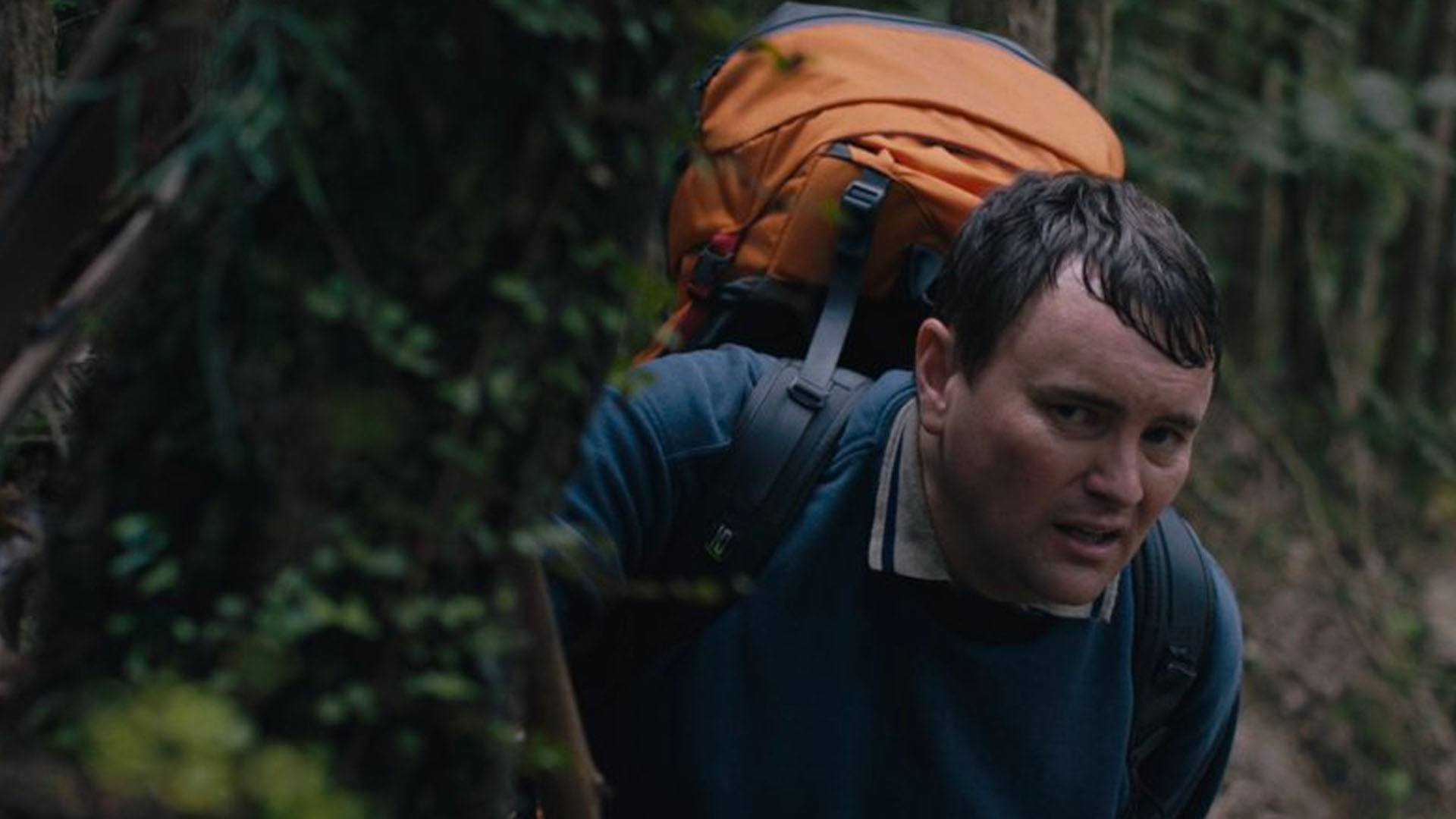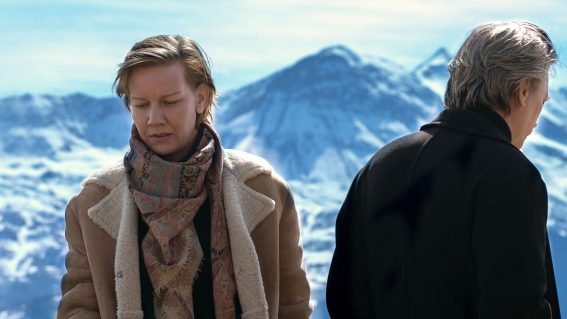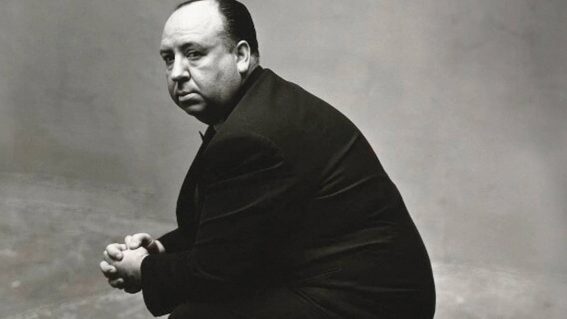NZIFF 2023 mini-reviews (F – L)

Our writers share their thoughts on this year’s Whānau Mārama: New Zealand International Film Festival selections.
This year’s festival features plenty of gems – check out what we’re watching, and keep checking this page for the latest mini-reviews, updated throughout the festival.
All 2023 mini-reviews:
Latest reviews | A – E | F – L | M – R | S – Z
Fremont
Captivatingly droll mundanity in the Kaurismäki/Jamursch key, following the immigrant experience of an Afghan refugee (Anaita Wali Zada, a refugee herself). Gentle, understated magic unearthed in tiny details, regional specificity; a Vashti Bunyan karaoke session that’s one of the most unexpectedly transporting moments of the year. AARON YAP
The Giants
Delivers a good mix of activist biopic and cinematic ode to trees being fucking awesome, which is what I expected. What I didn’t expect was a deep dive into the past half-century of getting environmental action into the Australian political machine, some spiritually taxing subject matter transformed into an immensely valuable watch. LIAM MAGUREN
Good Boy
This weird Scando comedy has a great deal of the quirky humour you expect from weird Scando comedies before sharply shifting about halfway through into something much, much darker. I didn’t know the handbrake turn into horror was coming, which meant it had a lot of oomph when it hit, but even then I couldn’t have guessed how pitch black awful the ending would be. I didn’t love it as a whole, but Good Boy is one of the odder, more interesting films on the programme, for sure—and easily one of the darkest. DANIEL RUTLEDGE
The Grab
The biggest Cree proverb in the world of bumper stickers and t-shirts (“Only when the last tree has died and the last river been poisoned and the last fish been caught will we realise we cannot eat money.”) tends to gloss over one thing: the super-mega-rich do realise they can’t eat money. And they’re quietly doing terrible things with said money to secure their future access to such natural resources. Incredible (and dangerous) investigative journalism from a documentary that should rightfully be taught in secondary schools. SARAH THOMSON
Feeling unreassuringly relevant viewing the same day as the US Secretary of State arrived in Aotearoa—and just one week after Russia unilaterally suspended the Ukraine grain export deal, with global implications—this new doco from the director of Blackfish takes a frightening look at the geopolitical scramble for food and water resources. With our country hardly immune to others buying up our water, this is a sobering account of a painstaking journalistic campaign to peer behind the curtain—revealing mercenaries, corruption, hedge fund stooges, shady acquisitions and the odd familiar modern villain like Erik Prince. Possibly runs out of gas a bit, but may be more of an exercise in awakening our vigilance than a call to action. STEVE NEWALL
Hello Dankness
Surpassing a mere cataloguing of reference points, Soda Jerk patiently build a narrative out of appropriated material that sees the white America depicted in Hollywood films of the 80s and 90s run headlong into the madness of MAGA and COVID. Since their last NZIFF appearance with Terror Nullius, this cut-up/recontextualisation method might feel a little less rare—but not at this scale or complexity, or with such a patient approach to building a narrative that brings in all of the context of its sampled content. Technically staggering, sometimes scathing, funny-as-fuck. STEVE NEWALL
Based on the trailer for this, I went in expecting a frantic mashup of MTV-style “woahhhh mannn!” energy, and instead saw a really thoughtful, clever, and well-summarised, less frantic mashup of the events of the last seven years. Adbusters magazine for the doomscrolling generation. MATTHEW CRAWLEY
Holy Spider
Not for the faint-hearted, Ali Abbasi’s nightmarish neo-noir take on Iran’s infamous Spider Killer is a searing indictment of a society steeped in misogynistic hypocrisy. As the investigative reporter risking all to expose a serial killer preying on Iran’s underclass of female sex workers, Zar Amir-Ebrahimi’s powerful performance anchors a bold, bleak, violent, and gut-wrenching tale that disturbs, provokes, and distresses. An immediate, important, and impressive reminder of film’s unflinching power to take the viewer on a journey into the heart of darkness. ADAM FRESCO
A confronting serial killer flick that’s somehow cold and observational yet also a screaming, rage-filled condemnation of modern Iranian society. The pacing is a little strange and the narrative POV shifts will unsettle some in an interesting way, but simply frustrate others. The depictions of sex workers being bludgeoned and strangled to death will be too unpleasantly realistic for some, so approach with caution. DANIEL RUTLEDGE
How to Blow Up a Pipeline
A tense, thoughtful drama, Daniel Goldhaber’s film boasts a committed young cast and a powerful premise. Is violent action any way to challenge corporate greed, or are activists willing to go to such lengths perpetuating the very destruction they oppose? It’s a hot topic trigger issue, presented as a cracking desert-set, environmental-action thriller. Whilst its youthful angst might irritate some, it dares to ask tough questions to which it never assumes to have the answers. ADAM FRESCO
Both currently relevant and an echo of unflashy agit-thrillers of past decades, this is not an instruction manual. If you were somehow to remove the environmental context, Pipeline would resemble a heist thriller, as a group assembles to carry out their plan and flashbacks round out backstories. But in a world where direct action is becoming more urgent, this feels more like a dispatch from the front lines, one that presents its events as matter-of-fact, without judgement—tense and chilling. STEVE NEWALL
How to Have Sex
This might be the film of the festival for me. Molly Manning Walker approaches the heavy subject of consent (and the lack of) in a way I have genuinely never seen on screen before, and certainly never handled with such empathy and power. Mia McKenna Bruce is incredible as Tara: subtle expressions shift across her face in the space of seconds—revealing the turbulence of her internal world better than any dialogue could. That being said, the script is excellent and the ensemble cast are all standouts. It’s rare to see teenage-hood explored so accurately in the cinema. Tread gently going into this film—its realism makes it a full-on watch—but it’s also generous, gentle and at times very funny. Truly extraordinary storytelling. RACHEL ASHBY
The review headlines I saw before watching this certainly played up the nasty unpleasantness of its third act more than the feel-good hilarity of much of what happens earlier, which I guess makes sense due to just how impactful the darker stuff is. But this is a stunning debut film for a lot of reasons, not all of them terrifying and dreadful. It’s a wildly impressive depiction of the exhaustingly relentless boozing and sweaty partying of horny youngsters as both a hedonistic fantasy and a grim, depressingly realistic nightmare. DANIEL RUTLEDGE
If Only I Could Hibernate
This poverty struggle drama avoids sinking into poor-sploitation thanks to some level-headed storytelling and its likeable Gen Z lead. If the plot points end up feeling overly familiar, If Only I Could Hibernate at least earns distinction with its noticeably affectionate eye on modern Mongolia (which looked stupendous on the big screen). Would love to have heard more of the beatboxing score. LIAM MAGUREN
The Innocents
One of the all-time great creepy psychological chillers. New 4K restoration, shimmering across the screen at the Civic, allows its gloomy Gothic sensuality to envelop you with its elegant death-hug. Deborah Kerr’s brilliantly unnerving performance, Freddie Francis’ exquisite black-and-white cinematography, Jack Clayton’s impeccable craft… This is truly movie church — a religious big-screen experience. Often imitated, rarely surpassed. AARON YAP
Inside
I like Willem Dafoe, but in this claustrophobic pandemic version of Cast Away he deserved a better script. He’s Nemo, an art thief, trapped in a New York penthouse with nothing but priceless works of art. But director and co-writer Vasilis Katsoupis does little to make us want this Nemo to be found, let alone contemplate the place and value of art in our world. ADAM FRESCO
Kim’s Video
Initially grating doco becomes increasingly fascinating—I wasn’t sold on the super-personal approach taken to showcasing the wonderful world of esoteric 80s/90s/00s NYC VHS rental chain Kim’s Video, until it kinda, sorta clicked in the second and third acts. Its myopic tone might be the flipside to the filmmaker’s obsessive persistence in tracking down the 55,000 tape collection after the stores’ closure, the extremely subjective approach feeling more relevant as the film captures casual streetside encounters with Sicilian mafioso and makes an accomplice of sorts out of founder Yongman Kim. STEVE NEWALL
At first, a somewhat guileless first-person video diary from co-director David Redmon remembering Yongman Kim’s legendary New York video rental libraries. Until it isn’t. [small spoilers start here] With the business a casualty of the digital age, Kim’s unique collection finds its way to Sicily (!?) on promises of protection, digitisation, and a second lease of life—turning Redmon’s hyper-personal documentary into a kind of How To With John Wilson on asking questions of Very Dangerous Men. A strange film, with the strangeness perhaps apt for the truths it holds within it. SARAH THOMSON
If you daydream wistfully about those glorious lost hours spent agonising over the “five-for-$10 at Video Ezy Ponsonby” era, and especially if you’re still mourning its closure years later, Kim’s Video might just be the bonkers doco to briefly lift your spirits. How do the Sicilian mafia and some high level Italian politicians have anything at all to do with the collection of a shuttered NYC video store? Only two ways to find out, and watching this brilliant flick is the less dangerous of your options! MATTHEW CRAWLEY
King Loser
A time machine to the bygone era of NZ’s 80s and 90s guitar music scene; an epitaph/celebration of the iconoclastic Celia Mancini; a reminder of the awesomeness of King Loser; and an account of their chaotic last run of shows. King Loser is all that, plus one of the best NZ music docos that’s yet been made. Sometimes hilarious, sometimes deeply moving, this is something special (even if King Loser’s most notorious moments may still lie dormant). STEVE NEWALL
Watching this with an audience of King Loser fans and friends was a pretty special and intense experience. Compulsory viewing for anyone with an interest in Aotearoa’s underground music scenes—it’s certainly the film I’ve spent the most time mulling over at this year’s festival. It’s a searingly visceral documentary told with empathy, humour, and honesty. Oftentimes a hard watch, but always electric: a thrilling tribute to a legendary group. RACHEL ASHBY
Directors Cushla Dillon and Andrew Moore document 1990s Kiwi indie band King Loser’s farewell tour, in an exhilarating true-life tale of sex, drugs, rock ‘n’ roll, quitting drummers, in-fighting, addiction, depression, and ambition. Every cliché you’d expect from a rock biopic, yet real, rough, and raw, in a down ‘n’ dirty documentary charting the highs, lows, mental, and financial struggles that will strike a chord with any Aotearoa underdog artist chasing their dream against all the odds, sods, and a-holes saying: “Get a proper job”. ADAM FRESCO
Imagine being next to a drunk cousin transporting sticks of plutonium in the boot of their Toyota Carolla. Watching this constantly bickering, sometimes benevolent, highly beloved, but ultimately broken band attempt their farewell tour often felt that tense. I’d never heard of King Loser before this film, but Cushla Dillon and Andrew Moore do an excellent job illustrating their relevance, using them as a conduit for exploring Aotearoa’s underground music scene of the ’80s and ’90s, and telling their rags-to-rags story with a kind of stylised haphazardness totally fitting of a stylishly haphazard band. LIAM MAGUREN
L’immensità
L’Immensita is gorgeous and stifling. Penélope Cruz shines as a mother on the verge of leaving her controlling marriage while trying to manage her children’s experiences of their difficult father. The relationship between her and her eldest child Adri anchors the film as both characters navigate big personal shifts in the patriarchal context of their home. While the big moment of liberation feels often out of reach in the scope of this story, the honesty with which mother and child see each other feels extraordinarily hopeful. RACHEL ASHBY
L’immensità is absolutely dripping with charm, swoon-worthy 1970s Italian style and dreamy Mad Men-esque imagery. Despite the depressing domestic reality for Penélope Cruz’s character and her family, director Emanuele Crialese still makes space for wholesome childhood memories between the brutal sexism and heartbreaking gender dysphoria in this touching autobiographical flick. And boy can those kids act! ANNABEL KEAN
With 2023’s Aftersun and The Fabelmans, we’ve seen a recent run of filmmakers turning an autobiographical eye on childhood through cinematic portraits of their own parents from a child’s point of view. This charming film, set in 1970s Rome, is entirely viewed from the inquisitive gaze of Andriana, a 12 year old trying to define their shifting gender identity. Adri’s mother, played by Penélope Cruz, is kept at arm’s length, yet shines in fantasy musical sequences. A deeply melancholy film, we, like Cruz, can’t help but look on with wonder and jealousy at the games carried out by the children in the film (going to try that swapping keys prank for sure). CALLUM DEVLIN
La Chimera
“What to do with the past?” asks director Alice Rohrwacher, in their third film following such a rumination—after 2014’s The Wonders and 2018’s Happy as Lazzaro. The question is inescapable in Rohrwacher’s 1980s central Italy, a country slowly emerging from the Years of Lead into something resembling the corruption of present day. Beautiful and broken, our band of ‘tombaroli’ (gravediggers) led by a magnetic Josh O’Connor, raid the countryside’s past to provide for their present—both as the many headed beast and the impossible liminal dream of the film’s title. Stunning. SARAH THOMSON
It’s a pleasure following a lean grimy-suited Josh O’Connor around 80s Tuscany in Alice Rohrwacher’s latest—even (especially?) as he shows a knack for finding Etruscan-era graves and plundering them with his pals. Gorgeously shot, populated by uniformly winning performances and juggling both joy and melancholy, this is the perfect kind of tomb raider for NZIFF. Might’ve prompted some thoughts about being entombed in the cavernous antiquity of the Civic Theatre (hey not a bad thing) and/or adding a dowsing rod to my Xmas list. STEVE NEWALL
Last Summer
The story of a middle aged woman having an affair with her teenage stepson seems so stereotypically French, I was surprised to find that it is actually a remake of a 2019 Dutch drama, Queen Of Hearts. Director Catherine Breillat is known for her cavalier attitude toward the taboo—and planted squarely in the subjectivity of a character who, were the genders swapped around, would surely be deemed a predator, Last Summer is saucy but deeply discomforting. I wasn’t sure what I thought all the way through, but the unnerving final scenes won me over. KATIE PARKER
Late Night with the Devil
Parapsychology, psychics and demonic pacts run amok on a flailing late-night talk show one Halloween in 1977. A fiendishly entertaining riff on found-footage and occult shockers, with delightfully authentic analog feel and smartly calibrated tension and tongue-in-cheek humour. An absolute joy to see David Dastmalchian inhabit a lead role with such aplomb, though Ian Bliss comes close to stealing the show as a blowhard skeptic. AARON YAP
Maybe the most fun I’ve had at the fest this year, following a 1970s talk show broadcast that goes awry in ways I won’t spoil. It’s a great showcase for David Dastmalchian, and gets more nerve-wracking as it goes until a gonzo finale. Reminded me of the classic BBC pseudo-documentary Ghostwatch, but much weirder and wilder. TONY STAMP
David Dastmalchian is a revelation here as a 70s talk show host, never feeling anything short of 100% the real deal in this found footage horror. Rarely do movies nail shows-within-films as seen here, his Carson-competing talk show feeling legitimately staged throughout. This helps markedly with the sense of growing dread throughout—as does the time period, which locates this around the religious terror of The Exorcist and The Omen. Yeah, that’s right, there’s some devil shit—but you knew that from the title. STEVE NEWALL
Despite it feeling like an idea reworked from the V/H/S series, this tasty nugget of horror hooked me with its detailed depiction of late-night ‘70s showbiz and David Dastmalchian’s equally dedicated performance. Having the threat of the devil neatly capitalised on the mounting stress of doing live TV, and even if some wobbly visual effects broke the immersion a bit, it’s great to see filmmakers summon the power of found footage horror in this way. LIAM MAGUREN
One of the few horror offerings in this year’s festival, this campy, meticulously crafted found footage period piece doesn’t quite stick the landing, but is a lot of fun nevertheless. Taking the form of the long lost final episode of a fictional 1970s late night show—a Halloween special featuring a demonically possessed teenage girl—Late Night with the Devil could have gone to darker, nastier places, but is charming and enjoyable as is and an impressive piece of genre filmmaking. KATIE PARKER
Little Richard: I Am Everything
‘Little’ Richard Penniman, musician of phenomenal influence and voracious live performer for over seven decades, didn’t do things by halves. Lisa Cortés documentary not only snaps along at pace, charting a life spent hurtling between extremes of vice and virtue; aesthetic and ascetic; success and squalor in just over 100 minutes, but also introduces academics, scholars and ethnomusicologists that place Penniman as a catalytic agent of Black and Queer culture and question the prevailing whiteness of the ‘Rock ‘n’ Roll’ canon. A necessary watch. SARAH THOMSON
From Tutti Frutti to Lucille, good golly does this documentary rock ‘n’ roll, cementing Little Richard’s place as a pioneer in the pantheon of popular music. Whilst it might be criticized for skirting around his later life, (when he got religion, and jettisoned some of his past), his early career, and non-conformity at a time of fervent homophobia, and racist segregation in the US, cannot, and are not, underestimated in this scintillating celebration. ADAM FRESCO
Ten out of ten for reminding the world that Little Richard is the real King of Rock’n’roll, hugely interesting to learn more about the queer and drag scenes of 1950s America, and brilliant to see footage of the surprisingly conflicted Quasar of Rock. Some stilted flow, unnecessary guest performances, and odd CGI glitter graphic interruptions get in the way of this being a great film, but fascinating all the same. MATTHEW CRAWLEY
It’d be hard to make a bad Little Richard doco—he’s too interesting, too inspiring, too conflicted, and sometimes too tragic a subject for that. Missteps may abound here, but there’s plenty of fantastic archive capturing Little Richard in full flight, be it performance, interview, or hawking bibles. What’s special to this doco, though, is the in-depth discussion of his queerness and that of 50s and 60s America, going beyond merely acknowledging it to explore its meaning both personally and culturally: “What would it do to the American mythology of rock music to say that its pioneers were Black queer people?” STEVE NEWALL
Loop Track
Tom Sainsbury and Chillbox successfully transition from slickly-produced award-winning 48hours shorts to slickly-produced feature filmmaking with this paranoia nature thriller, maintaining 94 minutes of slow-burning suspense with solid balms of humour. An extra level of dimension to the characters could have boosted the central is-it-all-in-his-head tension, but the actors work well with what’s there, with Hayden J Weal being a particular standout with his unique take on an alpha Kiwi bloke. As for that climax? It’s a doozy. LIAM MAGUREN
As someone who identifies strongly with both the harrowing prospect of tramping for any length of time, and worse still the notion of sharing unexpected company (the friendlier they are, the worse it is) Tom Sainsbury’s eerie new feature Loop Track had me set up for a sweaty and spooky emotional hike from the outset. Suffice to say, you’ll be shoveling popcorn in fistfuls like it’s chocolate and berry scroggin by the end of this killer exercise in building dread, and not just if you dread exercise… MATTHEW CRAWLEY
I’m loath to try and give a synopsis of Loop Track, because the less you know about this one going in, the more fun you will have. Let’s just say that anyone buying a ticket because they’ve had a giggle at one of Tom Sainsbury’s instagram videos, or because they love his Paula Bennett impersonation, will be in for quite the surprise with his feature film directorial debut. It’s tense, it’s shocking, it’s really bloody good. FFO: Peter Jackson in the 80s, Jordan Peele in the Director’s chair, or ghost stories in the tramping hut. RACHEL ASHBY
All 2023 mini-reviews:
Latest reviews | A – E | F – L | M – R | S – Z















